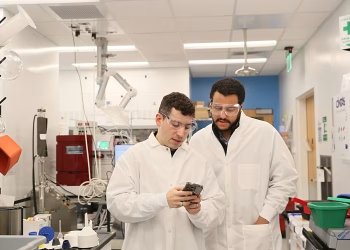Hearing loss, or hearing impairment is when a person’s ability to hear is reduced. Our ears are responsible for hearing and balance, it receives sound and converts it into signals that the brain can understand. Hearing loss may develop at any time during the life course. The onset can be sudden or gradual, and one or both ears can be affected. The major causes of hearing loss include congenital or early onset childhood hearing loss, chronic middle ear infections, noise-induced hearing loss, age-related hearing loss, trauma and ototoxic drugs that can damage the inner ear. Although some hearing loss might be temporary or treatable using medical or surgical methods, most hearing loss is permanent or slowly progressive.
Hearing impairment is one of the most common disabilities in the human population and presents a great risk in everyday life due to problems with speech recognition, communication, and language acquisition. Unmanaged hearing loss can lead to psychosocial effects such as increased levels of mental distress and fatigue, economic effects, it also leads to social isolation and a reduced quality of life due to withdrawal from leisure and social roles. Children with hearing loss and deafness rarely have access to any form of education.
World Health Organization, WHO estimates 466 million people worldwide have disabling hearing loss, it is also estimated that 1.1billion young people or people aged 12-35 years are at risk of hearing loss due to prolonged and excessive exposure to loud sounds, including music they listen to through personal audio devices.
Hearing Impairment constitutes a substantial burden on the adult population in Nigeria and other African Nations, yet screening for hearing loss is not routine, and treatments are often inaccessible because of the high cost or perceived ineffectiveness. Hence, WHO World Hearing Day 2021 is drawing the attention of Policy Makers to invest in cost effective interventions that will benefit people with hearing loss and bring financial gains to the society as well as taking action to prevent and address hearing loss across the life course.
World Health Organization, WHO estimates that 50% of hearing loss can be prevented through public health measures. Some prevention strategies target individual lifestyle choices such as exposure to loud sounds, screening and early interventions in childhood, and prevention of diseases through vaccination and hygiene programs.
WHO, World Hearing Day 2021 marks the launch of the World Report on Hearing, presenting a global call for action to address hearing loss and ear diseases across the life course. The theme of the World Hearing Day is:
Hearing Care for ALL! Screen. Rehabilitate. Communicate

Aderinola Olopade CEO Earcare Foundation
Clinical Audiologist
































